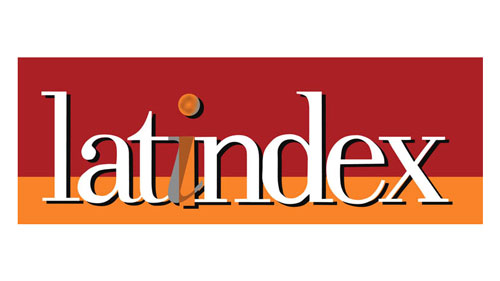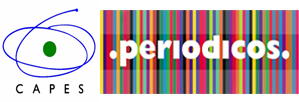Didactic assessment sequence for foreign language teaching in a hybrid learning environment: debates and possibilities
DOI:
https://doi.org/10.26512/rhla.v21i1.36339Keywords:
Didactic assessment sequence, Foreign languages, Hybrid learningAbstract
The Covid-19 pandemic has forced the development of strategies to adjust to the new teaching reality, be it in remote or hybrid format. In this sense, assessment has gained prominence in the discussions, since it has come to light that traditional assessment instruments frequently used in on-site classes, such as tests, are often not aligned with the new demands. Therefore, in this article it is proposed a matrix for developing didactic assessment sequences (DAS) that can be used according to the needs of each context in the learning-assessment-teaching process. To that end, a proposal of a DAS is first proposed and it is discussed how it works in light of different theories, namely learning-oriented language assessment, text genres and socio-discursive interactionism, active methodologies, digital literacy and multiliteracies. Furthermore, inferences among these theories are drawn in order to reach a learning-assessment-teaching process which is coherent and adequate to the new reality.
Downloads
References
ALMEIDA, B. O.; ALVES, L. R. G. Letramento digital em tempos de covid-19: uma análise da educação no contexto atual. Debates em educação, Maceió, v. 12, n. 28, p. 1-18, set.-dez. 2020. DOI: 10.28998/2175-6600.2020v12n28p1-18. Disponível em: <https://www.seer.ufal.br/index.php/debateseducacao/article/view/10282>. Acesso em: 13 dez. 2020.
AYROSA, P. P. S. Ensino remoto é EAD? Palestra proferida no VIRTUEL, Londrina (Paraná), jun. 2020. Disponível em: <https://www.youtube.com/watch?v=kir5-SKcGjw>. Acesso em: 17 jun. 2020.
BACICH, L. Inovação na educação. Disponível em: <https://lilianbacich.com/2017/11/01/metodologias-ativas-para-uma-educacao-inovadora/>. Acesso em: 29 jun.2020.
BAKHTIN, M. Estética da criação verbal. Trad. Paulo Bezerra. 4.ed. São Paulo: Martins Fontes, 2003.
BATISTA, E. G.; MORAES, I. T. Avaliação orientada para a aprendizagem no ensino de línguas para crianças. Revelli, Inhumas, v. 12, p. 1-19, nov. 2020. Disponível em: https://www.revista.ueg.br/index.php/revelli/article/view/10234. Acesso em: 30 jul. 2020.
BERBEL, N. A. N. As metodologias ativas e a promoção da autonomia de estudantes. Semina: Ciências sociais e humanas, Londrina, v. 32, n. 1, p. 25-40, jan./jun. 2011. Disponível em: <http://www.uel.br/revistas/uel/index.php/seminasoc/article/view/10326/10999>. Acesso em: 29 jul. 2020.
BRASIL. Ministério da Educação. Portaria nº 1.038, de 7 de dezembro de 2020. Altera a Portaria MEC [...] Covid-19. Diário Oficial da União: seção 1 – Extra A, Brasília, DF, ano 2020, n. 233-A, p. 1, 7 dez. 2020.
BRONCKART, J. P. Interacionismo Sócio-discursivo: uma entrevista com Jean Paul Bronckart. Tradução de Cassiano Ricardo Haag e Gabriel de Ávila Othero. Revista Virtual de Estudos da Linguagem - ReVEL. v. 4, nº 6, 2006. Disponível em: <http://www.revel.inf.br/files/entrevistas/revel_6_entrevista_bronckart_port.pdf>. Acesso em: 14 out. 2013.
BROOKHART, S. M. Appropriate criteria: key to effective rubrics. Frontiers in Education. v. 3., p. 1-12. 2018.
CARLESS, D. Learning-oriented assessment: conceptual bases and practical implications. Innovations in Education and Teaching International. Hong Kong, v. 44, n. 1, p. 57-66, 2007.
CARLESS, D. Learning-oriented assessment: Principles, practice and a project. In L. H. Meyer, S. Davidson, H. Anderson, R. Fletcher, P.M. Johnston, & M. Rees (Eds.), Tertiary Assessment & Higher Education Student Outcomes: Policy, Practice & Research. (pp.79-90). Wellington: Ako Aotearoa, p. 79-90, 2009.
COPE, B; KALANTZIS, M. A grammar of multimodality. International Journal of Learning, v. 16, n. 2, 2009, p. 361-425.
CRISTOVÃO, V. L. L. Procedimentos de Análise e Interpretação em textos de avaliação. In: GUIMARÃES, A. M. M; MACHADO, A. R.; COUTINHO, A. (org.), O Interacionismo Sociodiscursivo: questões epistemológicas e metodológicas. 1ª Ed. Campinas: Mercado de Letras. pp. 257-272. 2007.
CRISTOVÃO, V. L. L.; et. al. Uma proposta de planejamento de ensino de língua inglesa em torno de gêneros textuais. Letras. v. 20, n. 40, pp. 191-215. 2010.
CRISTOVÃO, V. L. L.; STUTZ, L. A Construção de uma Sequência Didática na Formação Docente de Língua Inglesa. Revista SIGNUM: Estudos da Linguagem. V. 14. nº1, pp.569-589. 2011.
DAVILA, E. M. M. Alfabetización digital en el aula. Proceedings of the Digital World Learning Conference CIEV 2019, 2020. Disponível em: <http://twixar.me/xNfm>. Acesso em: 15 dez. 2020.
DIESEL, A.; BALDEZ, L. S.; MARTINS, S. N. Os princípios das metodologias ativas de ensino: uma abordagem teórica. Thema, Pelotas, v. 14, n. 1, p. 268-288, 2017. Disponível em: <https://www.researchgate.net/publication/313960490_Os_principios_das_metodologias_ativas_de_ensino_uma_abordagem_teorica>. Acesso em: 29 jul. 2020.
DOLZ, J.; NOVERRAZ, M.; SCHNEUWLY, B. Sequências Didáticas para o oral e a escrita: apresentação de um procedimento. In: SCHNEUWLY, B; DOLZ, J. et. al. Gêneros orais e escritos na escola, trad. Roxane Rojo; Glaís Sales Cordeiro. Campinas: Mercado de Letras. 2004.
DOLZ, J.; SCHNEUWLY, B. Gêneros e progressão em expressão oral e escrita – elementos para reflexões sobre uma experiência suíça (francófona) In: SCHNEUWLY, B; DOLZ, J. et. al. Gêneros orais e escritos na escola, trad. Roxane Rojo; Glaís Sales Cordeiro. Campinas: Mercado de Letras, 2004.
FREITAS, M. T. Letramento digital e formação de professores. Educação em Revista, Belo Horizonte, v. 26, n. 03, p. 335-352, dez. 2010.
GARCIA, T. C. M.; MORAIS, I. R. D., ZAROS, L. G.; RÊGO, M. C. F. D. Ensino remoto emergencial: proposta de design para organização de aulas. SEDIS/UFRN, 2020.
GIRALDO, F.; MURCIA, D. Language Assessment Literacy and the Professional Development of Pre-Service Language Teachers. Colombian Applied Linguistics Journal, v. 21, n. 2, p. 243-259. 2019.
HAMP-LYONS, L. Language assessment literacy for language learning-oriented assessment. Papers in Language Testing and Assessment, v. 6, n. 1, p. 88-111, 2017.
HATTIE, J. Visible learning for teachers: maximizing impact on learning. New York: Routledge, 2012.
INBAR-LOURIE, O. Constructing a language assessment knowledge base: a focus on language assessment courses. Language Testing, v. 25, n. 3, p. 385-402, 2008.
KIM, M. K.; KIM, S. M.; KHERA, O; GETMAN, J. The experience of three flipped classrooms in an urban university: an exploration of design principles. The Internet and Higher Education, v. 22, p. 37-50, 2014.
LANKSHEAR, C.; KNOBEL, M. Sampling “the new” in new literacies. In: LANKSHEAR, Colin; KNOBEL, Michele. A new literacies sampler. New York: Peter Lang Publishing, 2007, p. 1-24.
LEFFA, V.; MARZARI, G. O letramento digital no processo de formação de professores de línguas. #Tear: Revista de Educação, Ciência e Tecnologia, v. 2, n. 2, 2013.
MITRE, S. M. et al. Metodologias ativas de ensino-aprendizagem na formação profissional em saúde: debates atuais. Ciência & Saúde Coletiva, Rio de Janeiro, v. 13, supl. 2, p. 2133-2144, 2008. Disponível em: <https://www.scielo.br/pdf/csc/v13s2/v13s2a18.pdf>. Acesso em: 25 jun. 2020.
MIQUELANTE, M. A. et al. As modalidades da avaliação e as etapas da sequência didática: articulações possíveis. Trabalhos em Linguística Aplicada, [S.l.], v. 56, n. 1, p. 259-299. 2017.
MORAES, I. T; FURTOSO, V. A. B.; GIRALDO, F. Developing Pre-Service Teachers’ Language Assessment Literacy: An Analysis of Classroom Tasks. No prelo.
RESER, M. R.; ROCHA, C.; SILVA, S. L. Metodologias ativas no processo formativo em saúde. Saberes plurais: educação na saúde, Porto Alegre, v. 21, n. 3, p. 91-103, dez. 2018. Disponível em: <https://seer.ufrgs.br/saberesplurais/article/view/88488>. Acesso em: 22 jun. 2020.
ROJO, R. Entre plataformas, odas e protótipos: novos multiletramentos em tempos de web2. The ESPecialist: Descrição, Ensino e Aprendizagem, São Paulo, v. 38, n. 1, p. 1-20, jan.-jul. 2017.. Disponível em: <https://revistas.pucsp.br/index.php/esp/article/view/32219>. Acesso em: 14 dez. 2020.
ROJO, R.; MOURA, E. Multiletramentos na escola. São Paulo: Parábola, 2012.
SCARAMUCCI, M. V. R. O professor avaliador: sobre a importância da avaliação na formação do professor de língua estrangeira. In: Rottava, L & Santos, S. R. (Orgs.) Ensino-aprendizagem de línguas: língua estrangeira. Coleção Linguagens, Ijuí: Editora da UNIJUI, 2006, pp. 49-64.
STIGGINS, R. Assessment Literacy. Phi Delta Kappan, v. 72, p. 534-539, 1991.
THE NEW LONDON GROUP. A pedagogy of multiliteracies: designing social futures. Harvard educational review, [s.l.], v. 66, n. 1, p. 60-92, 1996. Disponível em: <https://www.researchgate.net/publication/265529425_A_Pedagogy_of_Multiliteracies_Designing_Social_Futures>. Acesso em: 15 dez. 2020.
van LEEUWEN, T. Multimodality. In: SIMPSON, J. (Ed.). The Routledge handbook of applied linguistics. Taylor & Francis, 2011.
Downloads
Published
How to Cite
Issue
Section
License
Copyright (c) 2022 Revista Horizontes de Linguistica Aplicada

This work is licensed under a Creative Commons Attribution-NonCommercial-NoDerivatives 4.0 International License.
Articles published by the Journal Horizontes de Linguística Aplicada are licensed under a Creative Commons Attribution-NonCommercial-NoDerivatives 4.0 International License.
By publishing in Horizontes de Linguística Aplicada, authors agree to the transfer of economic copyright to the journal. Authors retain their moral rights, including the right to be recognized as the creators of the work.
Authors and readers are free to:
Share — copy and redistribute the material in any medium or format
Under the following terms:
- Attribution — You must give appropriate credit , provide a link to the license, and indicate if changes were made . You may do so in any reasonable manner, but not in any way that suggests the licensor endorses you or your use.
- NonCommercial — You may not use the material for commercial purposes .
- NoDerivatives — If you remix, transform, or build upon the material, you may not distribute the modified material.
- No additional restrictions — You may not apply legal terms or technological measures that legally restrict others from doing anything the license permits.





